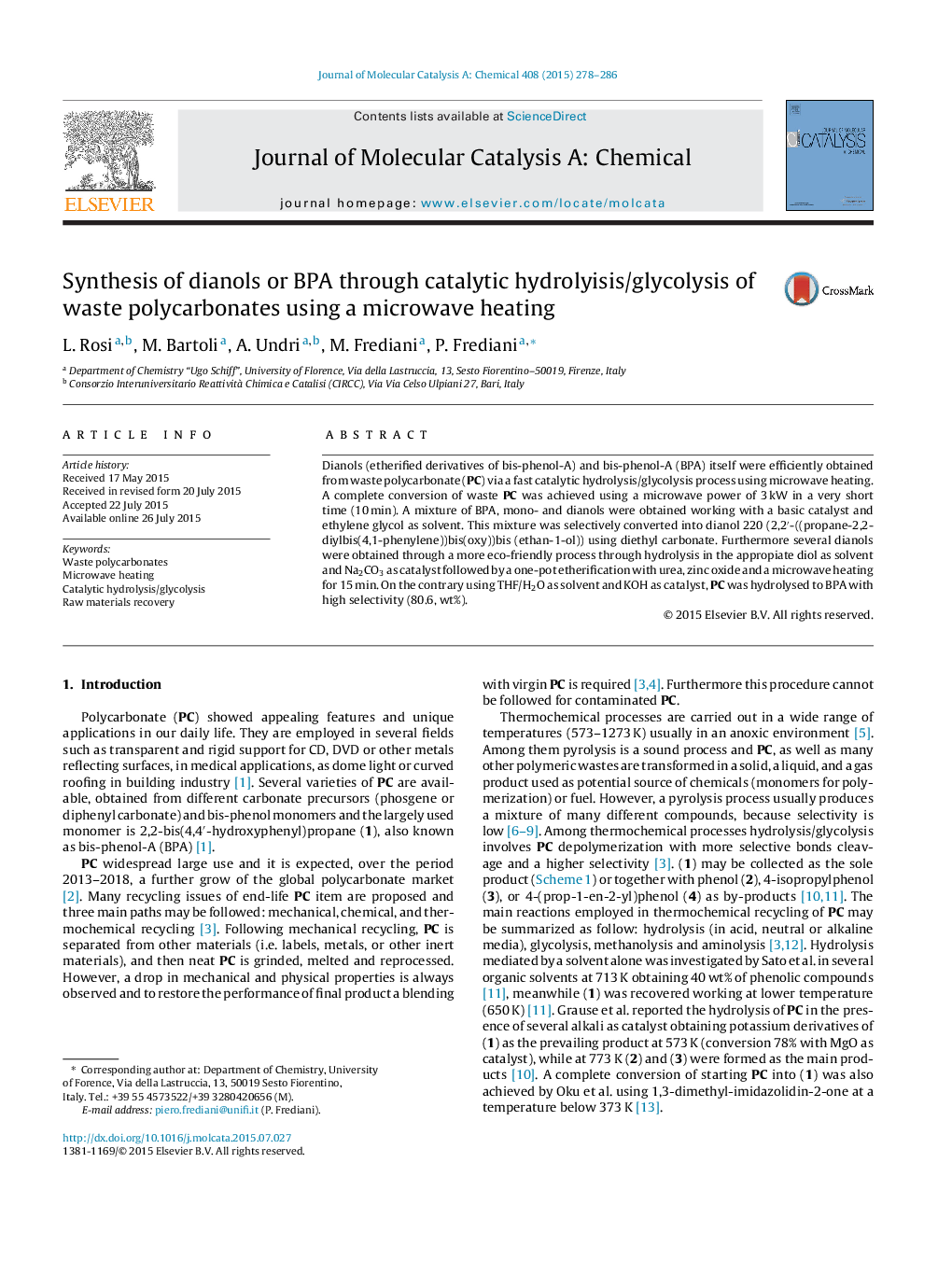| Article ID | Journal | Published Year | Pages | File Type |
|---|---|---|---|---|
| 64885 | Journal of Molecular Catalysis A: Chemical | 2015 | 9 Pages |
•Fast microwave assisted hydrolysis/glycolysis of waste polycarbonates.•Dianol was obtained by catalytic conversion of waste polycarbonate in high yield.•Fast etherification was reached using eco-friendly reactants (ZnO, Urea) and solvent.•Yields were evaluated via quantitative 1H NMR analyses.
Dianols (etherified derivatives of bis-phenol-A) and bis-phenol-A (BPA) itself were efficiently obtained from waste polycarbonate (PC) via a fast catalytic hydrolysis/glycolysis process using microwave heating. A complete conversion of waste PC was achieved using a microwave power of 3 kW in a very short time (10 min). A mixture of BPA, mono- and dianols were obtained working with a basic catalyst and ethylene glycol as solvent. This mixture was selectively converted into dianol 220 (2,2′-((propane-2,2-diylbis(4,1-phenylene))bis(oxy))bis (ethan-1-ol)) using diethyl carbonate. Furthermore several dianols were obtained through a more eco-friendly process through hydrolysis in the appropiate diol as solvent and Na2CO3 as catalyst followed by a one-pot etherification with urea, zinc oxide and a microwave heating for 15 min. On the contrary using THF/H2O as solvent and KOH as catalyst, PC was hydrolysed to BPA with high selectivity (80.6, wt%).
Graphical abstractFigure optionsDownload full-size imageDownload high-quality image (156 K)Download as PowerPoint slide
